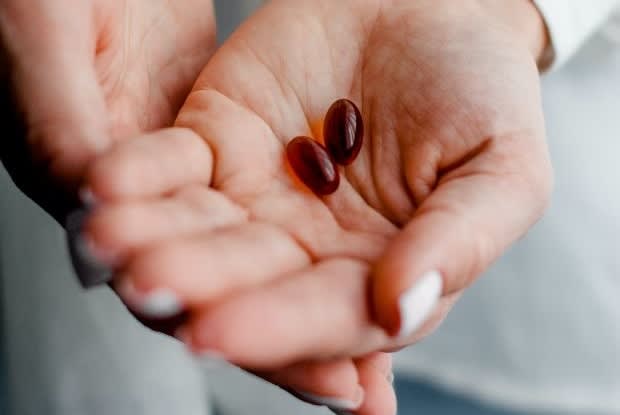Table of Contents
II. How Bacterial Infections Lead to Gastritis
III. Why are Pain Relievers Bad for the Stomach?
IV. The Relationship Between Age and Stomach Health
Symptoms of Gastritis
Gastritis is a term describing stomach conditions that occur when the stomach lining is damaged. Gastritis does not always cause symptoms, and gastritis symptoms are often similar to indigestion symptoms. When symptoms do present themselves, they usually consist of nausea, vomiting, gnawing pain, and a feeling of fullness in the upper abdomen after meals. [1]
Most of the time, these symptoms will denote indigestion and may disappear on their own. But if you experience these symptoms for more than a week, you may need to speak with your doctor. Gastritis symptoms can be effectively treated with proton pump inhibitors like Nexium (esomeprazole), Prilosec (omeprazole), and Protonix (pantoprazole). But what makes some people more likely to develop gastritis than others? Read on to learn about the risk factors associated with this stomach condition. [1]
A helicobacter pylori bacterial infection is one of the most common types of bacterial infections in the world. This type of bacteria is known to cause gastritis, so being infected can increase your risk of stomach inflammation. However, not everyone infected by helicobacter pylori develops gastritis. Why is this? Doctors think that only certain people are at risk of infection-caused gastritis because vulnerability to this bacterium can be an inherited trait. In general, more than one family member may be affected by gastritis.[2] However, the exact genetic cause has not been identified, so other reasons should be considered. For example, vulnerability to this bacterium may be caused by smoking and a poor diet. [1] If you take pain relievers regularly, you may be at an increased risk of gastritis. Pain relievers can cause gastritis by reducing important substances in the body that prevent the erosion of your stomach lining. Common pain relievers, such as aspirin, ibuprofen, and naproxen, have been reported to cause gastritis when taken too often or in large doses. But pain relievers can be an important part of your treatment plan for another condition. Speak with your doctor to adjust the dosage of your pain relievers to minimize the risk of gastritis. As we age, our stomach lining tends to thin. Older adults are also more at risk of bacterial infections and autoimmune disorders. Consequently, older age is a risk factor for gastritis. Nevertheless, the right prevention and self-care steps can help reduce age-related stomach damage. The main reasons that age affects stomach health include taking too many medications, inactivity, dehydration, gravity, and a weakened sphincter muscle due to a sedentary lifestyle. By staying active and eating well, you can improve your digestion and prevent age-related gastritis from occurring. [3] Several types of stress can increase your risk of gastritis. If you have undergone major surgery, or have sustained an internal burn or injury, your stomach lining may be more prone to acute gastritis. [1] Psychological stress can also increase your risk. This is because mental stress affects all of the systems in your body, including the digestive system. The gut contains millions of neurons that stay in constant communication with the brain. This is why you may feel “butterflies” when you are nervous. Chronic mental stress can cause bloating and pain, increasing your gastritis risk. [4] Autoimmune gastritis occurs when the body’s immune system attacks the cells that form your stomach lining. If this occurs continually for an extended period, your stomach’s protective barrier can wear out. This type of gastritis is more common in people with other autoimmune disorders. If you have Hashimoto’s disease, type 1 diabetes, or another type of autoimmune disorder, you may be at risk for gastritis. It is also important to note that a vitamin B-12 deficiency may also cause autoimmune gastritis. [1] Those who drink alcohol regularly may be at a higher risk of gastritis than those who do not drink alcohol. This is because excessive alcohol use can erode parts of the stomach lining. If you have alcoholic gastritis, you may mistake your symptoms for a recurring stomachache or heartburn. These symptoms could mean that you have developed ulcers or other complications in the stomach. By reducing your alcohol intake, you can significantly reduce your risk of gastritis. [5] As you can see, there are many factors that can increase your risk of gastritis. It may be challenging to reduce all of these factors. After all, habits are hard to break. But if your stomach health is important to you, talk to your doctor about eating healthier, staying stress-free, and other ways to improve your gastrointestinal system. If you have a prescription for gastritis medication, you can fill it on our online drug page today. The content in this article is intended for informational purposes only. This website does not provide medical advice. In all circumstances, you should always seek the advice of your physician and/or other qualified health professionals(s) for drug, medical condition, or treatment advice. The content provided on this website is not a substitute for professional medical advice, diagnosis, or treatment.
How Bacterial Infections Lead to Gastritis
Why are Pain Relievers Bad for the Stomach?

The Relationship Between Age and Stomach Health
Stress and Gastritis

Autoimmune Gastritis
Excessive Use of Alcohol
